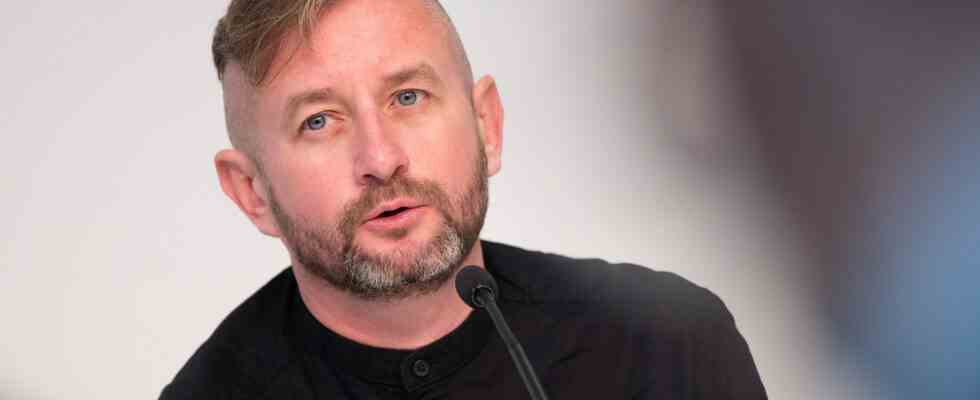portrait
Status: 10/23/2022 10:28 am
People must not lose their values, not even in war, says Ukrainian author Serhij Zhadan. Fear must not win. Today he is honored with the Peace Prize of the German Book Trade.
“Culture must not remain silent, not even during the war,” says the Ukrainian writer Serhij Zhadan in an interview at a reading in Kyiv. “When the culture is silent, when writers stop writing, that means fear has won.”
Unfortunately, literature cannot do much. Generals and soldiers, not writers, win wars. “But there is life behind the front, that’s where the whole country is,” says Zhadan.
And this country cannot live with fear, hatred and despair. People must not lose their values. And culture can help with that. When writers write, musicians play and the theater plays, it’s not about entertainment, it’s about living a fulfilling life. And the occupiers don’t manage to stop this life.
Latest book: “The sky over Kharkiv”
Zhadan, who is receiving the Peace Prize of the German Book Trade this year, was born in 1974 in Starobilsk, in the Luhansk region of eastern Ukraine, which is one of the areas annexed by Russia. Today he lives in Kharkiv, and his most recent book entitled “The Sky over Kharkiv” is also about the city in north-eastern Ukraine. It’s about surviving in the war, which Zhadan has witnessed first-hand for years.
Zhadan explains that his book describes how the war opens up a parallel world: “Because the war that started there in 2015, when the Russians took the city of Debaltseve, was and is very special. It was peaceful in one place and 50 Tank battles raged kilometers away.” It is difficult to stay with yourself under such conditions, to remain human, according to the author. “But it’s possible. And the main character in my book succeeds.”
Protagonists who defend themselves against superior powers
In his novels, essays, poems and song lyrics, Zhadan leads into a world that has experienced great upheavals and at the same time lives from tradition, according to the foundation board’s justification for the award of the Peace Prize. His lyrics told how war and destruction enter this world and shake people. Zhadan’s books are often about protagonists who defend themselves against superior powers – like Ukraine today against its superior neighbor Russia.
Zhadan does not want to rule out that the war will permanently change the relationship between the Ukrainians and the Russians, even though the respective culture and language of the two neighboring peoples have the same roots. “It’s a tough question, a very tough question,” he says.
Because the culture and the language are deeply rooted in a person, and you can’t give that up that easily. But certainly many Ukrainians will revise their relations with Russia. It’s hard to have the same attitude towards Russia today, towards Russian culture and literature as it was a year ago.
On the other hand, it is not Pushkin’s fault that Putin was born. “And yet it’s all being revised.”
“Fascist because I write in Ukrainian”
The German language is also no stranger to the novelist, poet and musician Zhadan. But the recurring accusation from Russia that all Ukrainians are Nazis and fascists does. He himself is often referred to that way – ridiculous, says Zhadan. “If you are against Russia, you are a Nazi and a fascist. All Ukrainians are Nazis, all Poles, Lithuanians, because they are against Russia. I also read about myself in Russian newspapers. Because I speak Ukrainian, I write Ukrainian, and that’s reason enough for them to call me a fascist. I think that’s laughable.”
With his band “Zhadan i Sobaky”, which means something like “Zhadan and the dogs”, this year’s Peace Prize winner of the German book trade has repeatedly performed in the war zone in recent months, in subway shafts in Kharkiv that served as air raid shelters – and also in front of Ukrainian soldiers, at the front.
Ukraine: Peace Prize of the German Book Trade for Ukrainian writers
Bernd Musch-Borowska, ARD Kyiv, October 23, 2022 09:02 a.m

